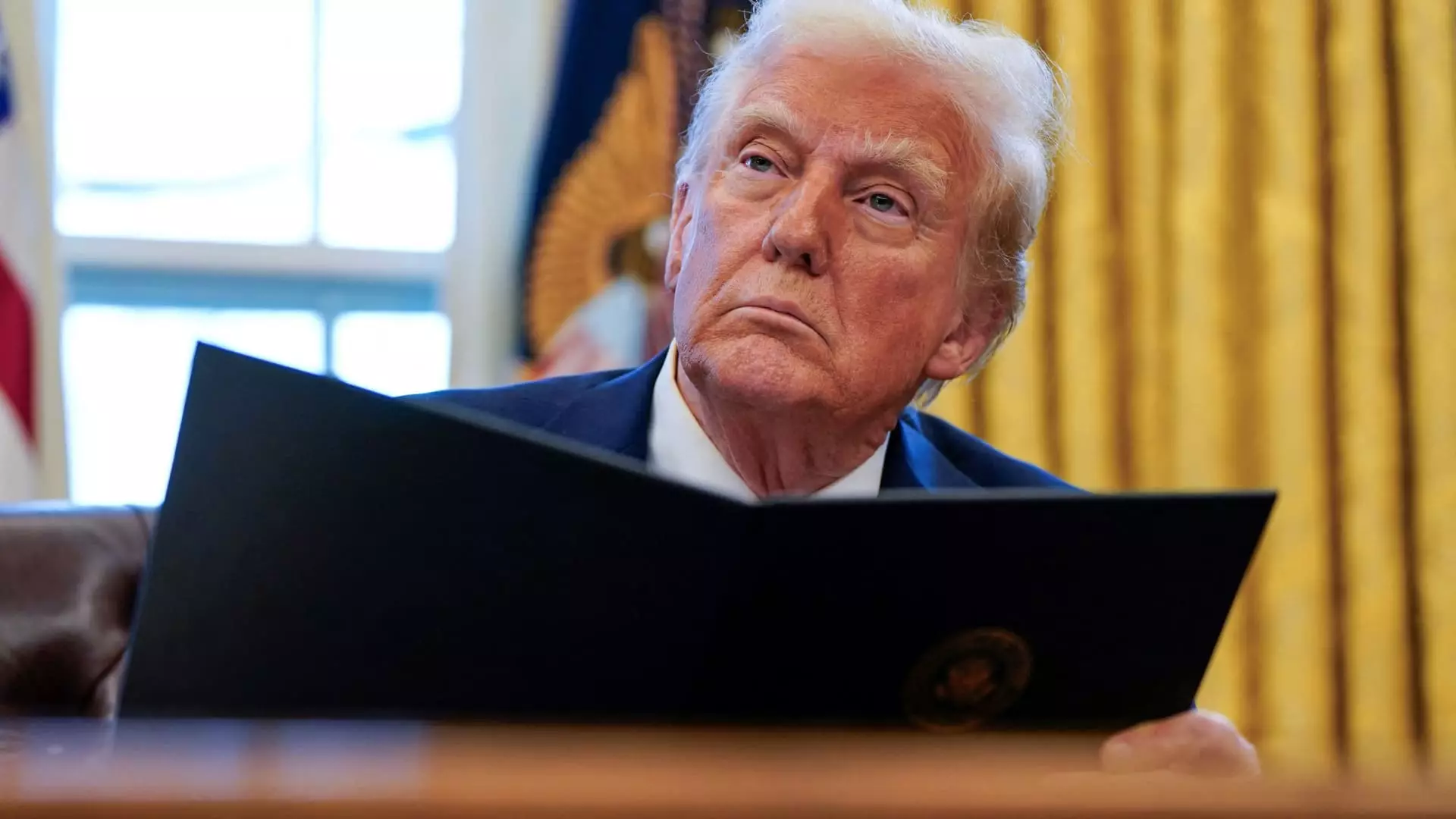The announcement from the White House marking President Donald Trump’s decision to impose significant tariffs on key U.S. trading partners has sent ripples through the economic community. The tariffs, quantified as a 25% fee on goods from Mexico and Canada alongside a 10% duty on imports from China, are framed by the administration as necessary measures to combat the influx of illegal fentanyl into the United States. The press secretary, Karoline Leavitt, portrayed the tariffs as a fulfillment of presidential promises, signaling a hardline approach to trade negotiations and foreign policy. As the situation develops, understanding the broader implications of these tariffs becomes crucial for the domestic and global markets.
In the immediate aftermath of the tariff announcement, financial markets reacted negatively, with the Dow Jones Industrial Average dropping over 300 points. This decline, estimated at around 0.7%, illustrates the anxieties felt across the investment landscape in response to trade policy uncertainties. Prior to the news, all major indexes, including the S&P 500 and Nasdaq Composite, had shown strong performance during the day. The sudden reversal highlights the inherent volatility tied to trade relations, suggesting that investor confidence is closely tethered to the government’s actions regarding tariffs.
While the specifics of how these tariffs will be implemented remain scarce, the White House has assured that further details will soon be available for scrutiny. The absence of clarity raises questions about potential exemptions for certain products, especially after conflicting reports circulated suggesting that some exclusions might be on the table. A blanket tariff could escalate costs across a wide array of consumer goods and industrial inputs, potentially leading to rising inflation at a time when price pressures have appeared to ease.
Economists express concern that this move might initiate an inflationary cycle as businesses adjust to increased expenses incurred through tariffs, a sentiment echoed by Fed officials actively monitoring the situation. The prospect of rising prices, if coupled with stagnant wage growth, could intensify the burden on American consumers.
The rationale provided for these tariffs centers on the administration’s focus on combating the illegal drug trade and immigration issues, presenting them as intertwined challenges that require a robust response. The ramifications of such unilateral tariff decisions are profound, not only affecting trade balances but also shaping the political discourse around international relations. Trade advisor Peter Navarro’s comments linking the impact of fentanyl overdoses to population levels in U.S. venues underscore the administration’s narrative that these tariffs are not just economic tools, but critical levers in addressing societal problems.
Moreover, the economy’s response to these tariffs hinges significantly on whether the actions lead to retaliatory measures from other nations. Such a tit-for-tat scenario could unravel ongoing trade agreements and disrupt established supply chains, further exacerbating challenges faced by American businesses and consumers alike.
The Federal Reserve’s analysis has underscored the need for a nuanced understanding of both the tariffs’ immediate effects and their long-term implications. As Fed Governor Michelle Bowman articulated, clarity in policy implementation is key to discerning how the economy might react.
While the administration positions these tariffs as a necessary measure against illegal fentanyl, the complex intertwinement of trade, economic stability, and political rhetoric cannot be underestimated. As stakeholders across the economy attempt to adapt, a careful examination of both domestic and international responses to these tariffs will be crucial in navigating the choppy waters of U.S. trade policy. Moving forward, transparency and strategic planning from policymakers will play pivotal roles in mitigating potential fallout from this bold decision.


Leave a Reply